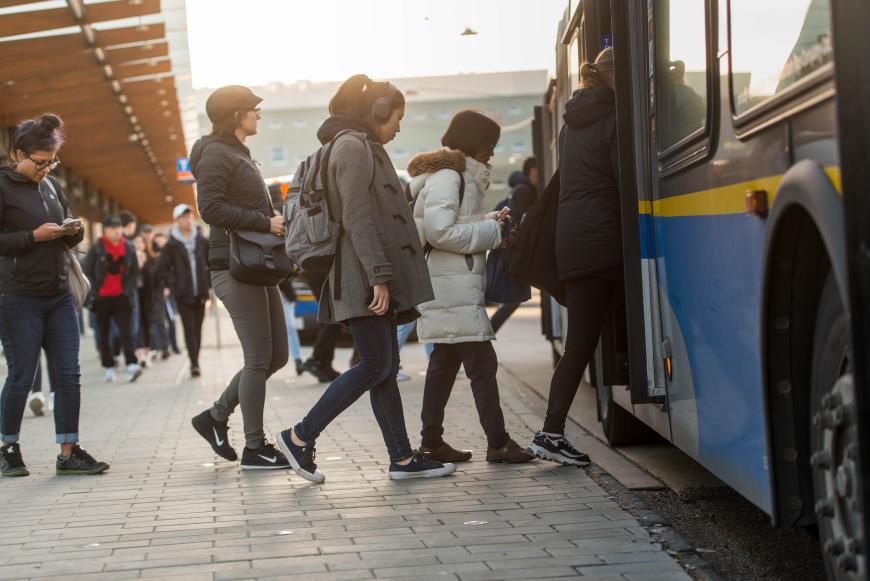
Target
By 2030, achieve a 45% reduction in commuting emissions from 2010 levels.
Rationale
Commuting by students, faculty and staff to the Vancouver campus is the highest extended impact emissions category accounting for nearly the same GHG emissions of buildings and energy supply combined. UBC has been very successful at increasing the transit mode share from 18% in 1997 to 54% in 2019 as a result of the introduction of the U-Pass program for students in 2003. However, substantial growth in the transit mode share is constrained until there is a rapid transit connection to UBC, which isn’t anticipated until around 2030.
This risks an increase to the single occupant vehicle mode share above the current 32% and therefore an increase in commuting emissions and public health impacts. There are opportunities for significant emissions reductions by decreasing commuting trips, shifting choices of transportation modes and vehicle types, and increasing transit capacity in the longer term. Climate justice factors into the development of transportation policies and programs to ensure that equity across the UBC community is considered.
Featured Project
In a survey conducted by TransLink, 92% of respondents indicated support for extending SkyTrain to the UBC Vancouver campus.
Take Action Now
Learn about sustainable transportation alternatives for your commute, and find resources to support you in using them.